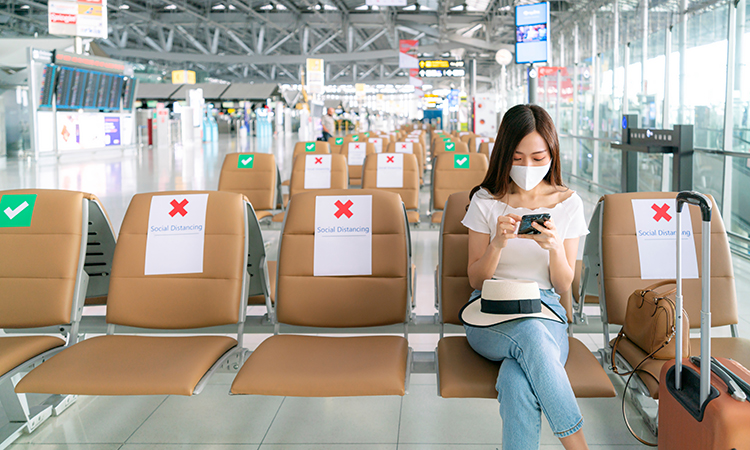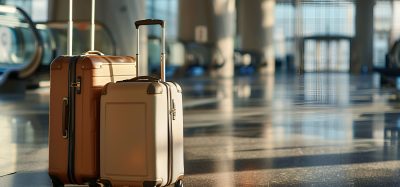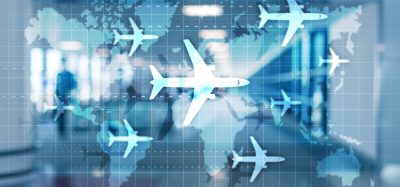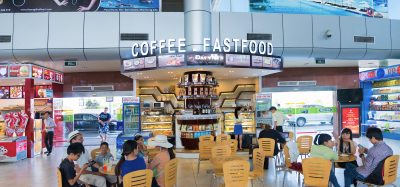New study outlines impact of COVID-19 measures on airport performance
- Like
- Digg
- Del
- Tumblr
- VKontakte
- Buffer
- Love This
- Odnoklassniki
- Meneame
- Blogger
- Amazon
- Yahoo Mail
- Gmail
- AOL
- Newsvine
- HackerNews
- Evernote
- MySpace
- Mail.ru
- Viadeo
- Line
- Comments
- Yummly
- SMS
- Viber
- Telegram
- Subscribe
- Skype
- Facebook Messenger
- Kakao
- LiveJournal
- Yammer
- Edgar
- Fintel
- Mix
- Instapaper
- Copy Link
Posted: 14 September 2020 | International Airport Review | No comments yet
A new study conducted by EUROCONTROL has shown that capacity constraints are the biggest challenge for airports in the face of COVID-19.


According to a new study published by EUROCONTROL, in order to reduce the impact of COVID-19 safety measures on airport performance and contribute to aviation’s overall recovery from the pandemic, airports need to focus on reducing the impact of space constraints and national authorities need to harmonise measures across European Union (EU) Member States.
The study, commissioned by the Airport Research Center (ARC), aims to help airports understand the impact of implementing COVID-19 measures on airport performance. In collaboration with Airports Council International (ACI) Europe and other industry partners, the study assessed the impact of these measures on terminal operations – in particular, passenger journey time, terminal throughput and boarding gate processing capacity.
Director General of EUROCONTROL, Eamonn Brennan, commented: “This report is a valuable practical contribution to recovery. It provides airports with a detailed set of process assessments indicating where they need to focus as traffic recovers. It highlights the vital importance of the harmonisation of measures for air travel, which is key to passenger confidence and efficiency.”
Olivier Jankovec, Director General of ACI Europe, said: “We are extremely grateful to EUROCONTROL for having followed our suggestion to look into the impact of COVID-19 measures on airport performance. This is a very important piece of work, not just for airports, but for the entire aviation system. Airport capacity issues are set to become a major constraining factor for the system when demand for air traffic picks up. This study gives a clear understanding of what lies ahead in this regard and what kind of mitigation measures need to be considered. We look forward to keep working closely with EUROCONTROL and all operational partners.”
With key inputs from ARC, ACI Europe and four airports/airport groups – Paris-Charles de Gaulle Airport (CDG), London Heathrow Airport (LHR), Stuttgart Airport (STR) and Swedavia – as well as the support of the International Air Transport Association (IATA), the ARC study used detailed simulations to model the potential effect of COVID-19 measures across airport processes.
IATA’s Regional Vice President for Europe, Rafael Schvartzman, said: “Health and safety is our number one priority and the aviation industry has taken firm action to safeguard the health of travellers, staff and crew during the coronavirus pandemic. These measures, including increased sanitisation and social distancing, inevitably impact airport capacity and aircraft scheduling. We welcome this study from EUROCONTROL, which gives valuable insight into the practical impact of COVID-19 health measures and provides airports, airlines and policymakers with vital data for future planning. It’s important we now take this information and work together to minimise capacity impacts.”
The results show that, for the same passenger numbers in a pre-COVID-19 queue:
- Fifty per cent more space is required at check in
- One hundred per cent more space at security control
- Thirty-five to 50 per cent more space at boarding gates
- Up to 10 minutes additional time to the departing passenger journey
- One hundred per cent more space at immigration
- Thirty to 50 per cent more space for baggage reclaim
- Five to 20 minutes additional time to the arriving passenger journey
- Additional measures are needed to mitigate impact if health checks are required for arrivals/transfers.
The main conclusions of the study are:
- Airports need to focus on key limiting components – security control and immigration in terms of throughput challenges, and boarding gates and baggage reclaim in terms of space constraints
- Airports already congested before the COVID-19 crisis can expect to reach their maximum saturation capacity at just 60-75 per cent of their peak 2019 traffic
- To avoid further delays and conflicting requests to passengers, greater harmonisation in terms of COVID-19 measures supporting passenger safety and re-building trust is essential across EU Member states.
Related topics
Airport crisis management, Capacity, COVID-19, Passenger experience and seamless travel, Passenger volumes, Safety, Terminal operations
Related airports
London Heathrow Airport (LHR), Paris Charles de Gaulle Airport (CDG), Stuttgart Airport (STR)
Related organisations
Airport Research Center (ARC), EUROCONTROL, European Union (EU), International Air Transport Association (IATA), Swedavia


















